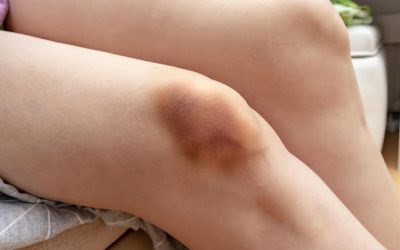Giỏ hàng hiện tại chưa có sản phẩm nào!
Alcohol withdrawal Symptoms, diagnosis and treatment
Initial doses of 10 mg equivalents of diazepam are given intravenously/intramuscularly and can be repeated every minutes 51,77. Some experts even advice and advocate use of loading doses of diazepam for management of DT. However, it is purely based on clinical experience as no clinical trials have been conducted in patients with DT. When light somnolence is achieved and the patient is relaxed, management may be shifted to oral/injectable symptom monitored schedule.
Evidence Profile
If you’re otherwise healthy and can stop drinking and get treatment, the outlook is usually good. However, sleep disturbances, https://pjtorressconsultemos.com/social-drinking-patterns-benefits-and-risks/ irritability, and fatigue may continue for months. If your home environment is not supportive for staying sober, talk with your doctor. Your doctor may be able to connect you with shelter programs for people recovering from alcohol addiction. The first goal of treatment is to keep you comfortable by managing your symptoms.
Some people may feel physical discomfort, while others might experience emotional as well as psychological symptoms. These symptoms can vary widely and are part of the complex drug withdrawal syndromes. Studies also show that many people give up on their detox journey simply because they can’t withstand the intense withdrawal phase. Over 75% of people who detox from substance use disorder experience post-acute withdrawal syndrome.) (PAWS). Some people can be treated at home, but others may need supervised care in a hospital setting to avoid potentially dangerous complications such as seizures. Often used to treat anxiety and insomnia, benzodiazepines include drugs like alprazolam (Xanax, Xanax XR), clonazepam (Klonopin), and diazepam (Valium).

What is the treatment for alcohol withdrawal?
In general, blood work will alcohol rehab test serum magnesium, and replacements will occur if indicated. Vitamins such as thiamine and folic acid will need to be supplemented. The person should also try to eat three well-balanced meals per day and drink enough water to remain hydrated. Benzodiazepines carry a Food and Drug Administration boxed warning because there is a risk of dependence.
In the First 8 Hours
- People who drink daily or almost every day should not be left alone for the first few days after stopping alcohol.
- Some people may feel physical discomfort, while others might experience emotional as well as psychological symptoms.
- Once they understand your drinking history, they’ll be better able to suggest treatments that could help you.
- They should also make sure you attend your counseling appointments and visit the doctor regularly for any routine blood tests that may be ordered.
Alcohol use is a pervasive problem that is taking an increasing toll on the world’s population. The World Development Report 1 found that the alcohol related disorders affects 5-10% of the world’s population each year and accounted for 2% of the global burden of disease. Globally alcohol consumption has increased in recent decades, with most of the increase in developing countries. Increase is more in countries where use of alcohol is traditionally less on population level and methods of prevention, control or treatment are not easily available.

- Several reviews, including a 2018 review and a 2014 review, have noted that sleep disturbances are common during cannabis withdrawal.
- Remember that their goal is to help you get healthy, not judge you.
- A literature search (Medline, Cochrane, EmBase, Psycinfo and DARE) found just two recent reports concerning the use of alcohol for alcohol detoxification 37,38, although there are reports in other medical specialties 39.
The complications of nicotine use are well known, including significant morbidity and mortality from cigarette smoking. The main complication of withdrawal is the somatic and behavioral complaints that lead to relapse and continued nicotine use. Talk to your doctor or an alcohol treatment specialist before you try tapering. They can help you understand what to expect and help you come up with a safe plan. Once you stop drinking and all the alcohol is out of your system, your diarrhea should start to get better.

Brain imaging may be undertaken in suspected cases of neurological insult. Intravenous or intramuscular lorazepam should be preferred and administered at frequent intervals with close monitoring. Lorazepam is more suitable in patients with hepatic disease, in the elderly alcohol withdrawal syndrome symptoms where there is risk of over sedation and respiratory depression with diazepam.
- After IV administration, it can be followed by oral maintenance therapy.
- Although withdrawal symptoms tend to ease after a couple of weeks, the severity of symptoms depends on the level of alcohol dependence.
- Essentially, disulfiram creates a strong aversion to alcohol, reinforcing the decision to stay sober.
The dosing is 1-4 mg every 5-15 minutes until adequate control of agitation is achieved. Large and rapid doses of lorazepam may cause cardiovascular toxicity due to propylene glycol, the diluent. Stimulant-withdrawal syndrome is treated with observation alone and does not require any specific medications. Patients may be discharged once their mental status has normalized.
Your blood pressure should be monitored closely because of the risk of hypertension. Clinicians use evidence based guidelines, often aligned with American Society of Addiction Medicine (ASAM) criteria, to determine whether your alcohol withdrawal care should occur in an inpatient or outpatient setting. Severe and complicated alcohol withdrawal requires treatment in a hospital — sometimes in the ICU.
What to Expect During Medical Detox
Alcohol withdrawal occurs when your body and central nervous system react to the sudden absence of alcohol after heavy or prolonged use. This process can cause a range of symptoms that vary in intensity, making proper understanding and medical support essential for safety and recovery. Alcohol withdrawal is a potentially serious complication of alcohol use disorder. It’s important to get medical help even if you have mild symptoms of withdrawal, as it’s difficult to predict in the beginning how much worse the symptoms could get.
This option is suitable for those with less severe withdrawal symptoms or strong support systems at home. Outpatient programs also combine medications, counselling, and support groups, but they require a higher level of personal responsibility and commitment to attend scheduled appointments and follow treatment plans. Drug withdrawal is a complex physiological response that occurs when the body suddenly reduces or stops the intake of a substance it has become dependent on. This dependency can develop with substances like opioids, benzodiazepines, or alcohol.
If you consistently consume significant amounts of alcohol, your CNS gets used to this effect. Your CNS must work harder to overcome the depressant effects of alcohol to keep your body functioning. Each of these symptoms can increase in intensity depending on the severity of the withdrawal. If you don’t already have a supportive network, you can make new connections by joining social media communities dedicated to alcohol-free living. This process temporarily restores homeostasis, or chemical balance, in an effort to counteract the impact of long-term alcohol use on the brain.
Để lại một bình luận